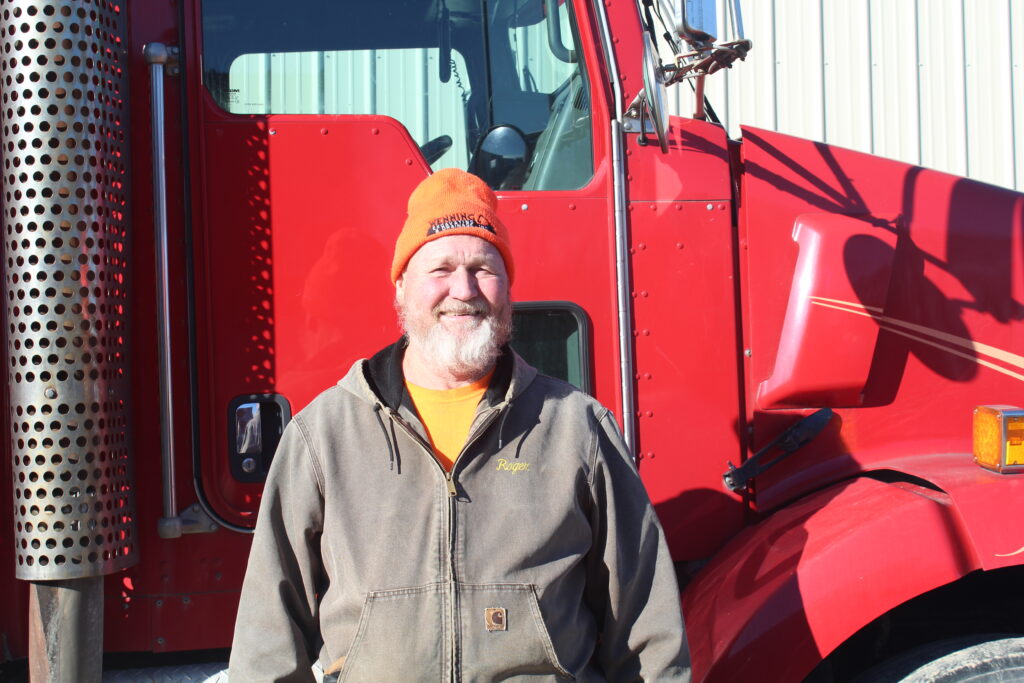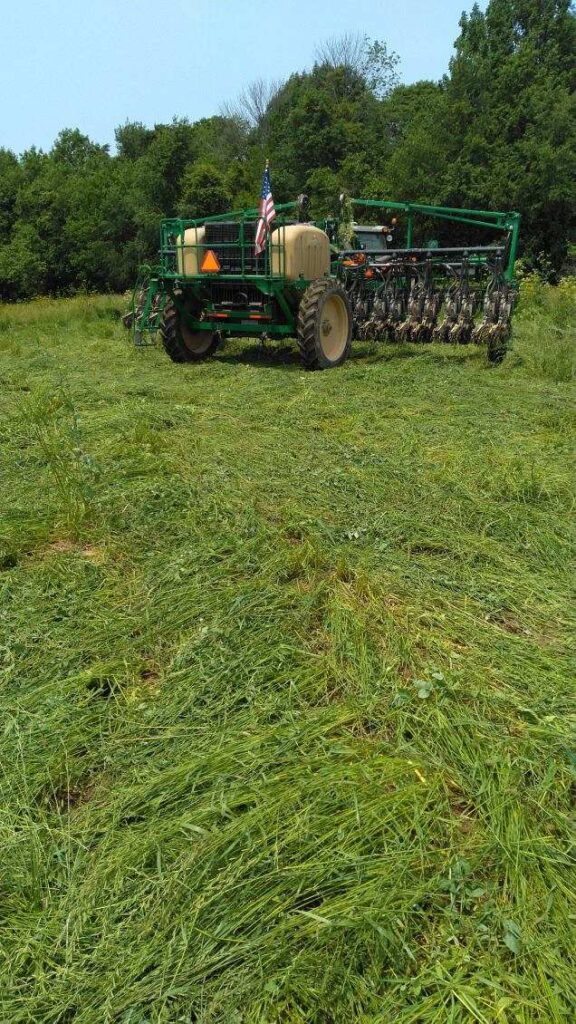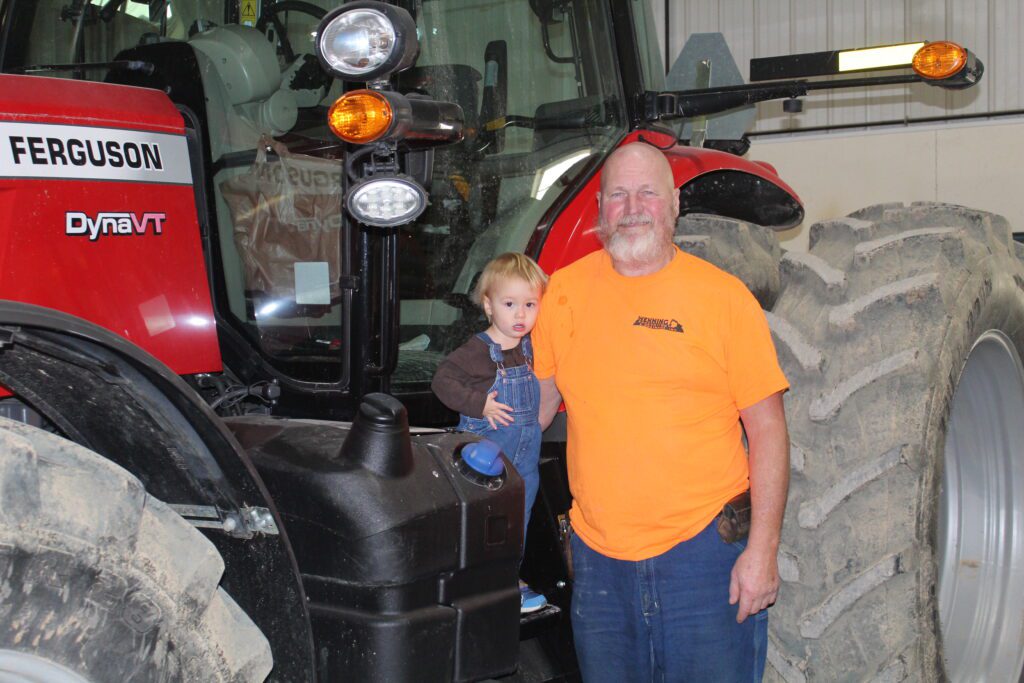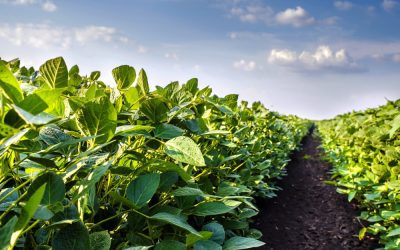Systems approach to conservation raises yields, cuts costs and protects soil health
By Amie Simpson
Roger Wenning, a farmer from Greensburg, Ind., has increased productivity and profitability on his operation by implementing a system that includes cover crops, no-till, drainage, crop rotation, and nutrient and weed management.
Wenning said this systems approach to conservation has increased his soil organic matter, reduced erosion, improved yields and lowered input costs during the last four decades.
“I’m seeing improvements every year,” he said. “These conservation measures and their impacts are why I’m still in the farming business today.”
Getting started out of necessity
Wenning grows corn, soybeans, wheat and alfalfa among the rolling hills and tight clay soil of southeastern Indiana. He also has cattle and owns Wenning Excavating and Drainage.


He began using conservation practices out of necessity in the 1980s.
“I didn’t have the money to do the tillage or buy the fuel, and I was witnessing my topsoil washing off my hills,” he said. “I needed to find a way to cut costs and save my soil and learned by trial and error.”
He started off by planting cover crops and using no-till practices but ran into issues due to his tough, wet soils. He found success with no-till only after installing drainage tiles to remove excess water and continuing to utilize the root systems of cover crops to improve soil structure. By the early 2000s he was 100 percent no-till and cover crops.
“Most years when we do a yield breakdown by soil type, those more challenging soils are my best yielding because of these practices. I’ve had over 250 bushels per acre on that ground. I’ve seen firsthand the impact these practices have had, and that’s why I’m so into it.”
Over the years he has also installed grassed waterways, filter strips, wildlife buffers, and water and sediment control basins. He has also enrolled land with steep slopes into the Conservation Reserve Program.
“I realized that each time I did one of these things, the farm got a little better and I was a little more profitable,” he said.
So, what has he learned along the way?
“That I don’t know everything and will always have something to learn,” he said with a laugh. “I’ve learned there seems to be more flexibility with planting dates by planting directly into cover crops; farming practices need to change as soil organic matter improves; and it’s important to pay attention to settings and optimize equipment performance.”
Wenning has even found success implementing conservation practices on rented farmland.
“Once you get it worked out with the landlord, it goes smoothly,” he said. “We’ve found that implementing conservation practices on land we are renting can be beneficial for us and the landowner. We plant cover crops and utilize no-till on rented ground from day one and can install tile, if necessary.”
Being willing to no-till and plant cover crops in the first year has helped Wenning stand out to landowners.
“It’s usually the reason we end up renting the ground,” he said. “Some of the people I rent from have reached out to me because of these practices.”
Paying it forward
Wenning is no stranger to getting involved and giving back to the agriculture community.

He has served on boards with the Indiana Association of Soil and Water Conservation Districts (IASWCD), the National Association of Conservation Districts, and now the Indiana Soybean Alliance.
His latest endeavor is serving as one of the founding members of a new farmer-led mentor program called Farm Advisors.
“We can connect you with someone who has been implementing soil health practices on their own operations for decades,” he said. “Getting a mentor is the best thing you can do, because they can help you avoid some of the mistakes and learning experiences they went through. These people are willing to help and want to see you succeed when adopting new conservation practices.”
Wenning encourages farmers interested in implementing new conservation methods to visit farmadvisors.ag for more information. Farmer mentors will be available to answer questions and help with equipment advice, cover crop species recommendations, key conservation management decisions, and more.
Posted: January 16, 2025
Category: Indiana Corn and Soybean Post - January 2025, ISA, News, Sustainability



